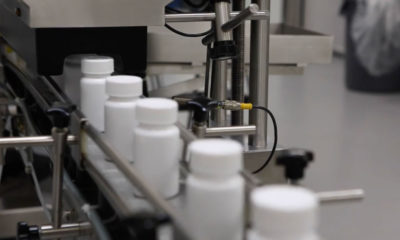A study done by the University of California at Riverside suggests that carcinogens in car seats may increase risk for developing cancer on long commutes. According to research, car seats contain TDCIPP, a flame retardant.
CBS News reported on the study, which raises the concern for people who spend longer times in their vehicles due to commutes to work or school. People who are exposed to carcinogens long-term may have an increased risk for developing cancer.
What is TDCIPP?
This chemical is technically known as chlorinated alkyl phosphates. It’s used in automotive seating and upholstery as a fire retardant. It’s also been used in the pads on infant changing tables and nursing pillows. It was once used in pajamas for children, but it was eliminated because it caused serious side effects. However, it’s still one of the most common additives for baby products.
The chemical can get into the air and mix with dust in a home. It can fall onto various surfaces in the household, including toys. Children who put the toys in their mouth may ingest the chemical. TDCIPP can also land on food, which would allow adults to ingest it. With vehicle upholstery, the dust could be breathed in because of the closed space.
It can be difficult to eliminate exposure to this chemical, especially when it comes to driving or riding in a car. However, you may be able to limit your exposure in other ways by reviewing the materials in the products you buy. TDCIPP is found in polyurethane foam. You can choose cotton, polyester or other natural fabrics that are safer and don’t contain foam.
TDCIPP was added to Proposition 65 in California, which is a list of chemicals known to cause cancer. This chemical was added in 2013, but it’s still being used in vehicles. The study showed that elevated risk came from just a week of commuting.
The Study and Participants
The study used about 80 participants, all of whom were students with commutes of about 15 minutes up to over two hours. The participants wore silicone wristbands as part of the test for five days. Airborne contaminants are attracted to silicone. The research team believes that the chemical then migrated to the participants’ systems.
The team plans to conduct another test with more participants of various ages. They plan to study ways to protect those who must commute daily from exposure. At the present time, they recommend dusting the inside of the car regularly to remove any excess dust. The Environmental Protection Agency also has guidelines on how to limit exposure to contaminants, though they may not be specific to TDCIPP.
The concern goes beyond what information was learned in this study to the possible impact for those who spend years with daily long commutes. Some people travel for one or two hours every day or more for many years. The potential for long-term effect is still an unknown until more research is done on TDCIPP and commuters.


































